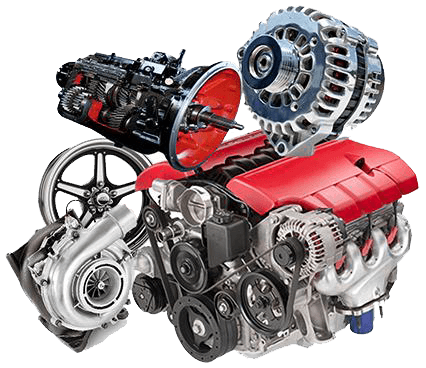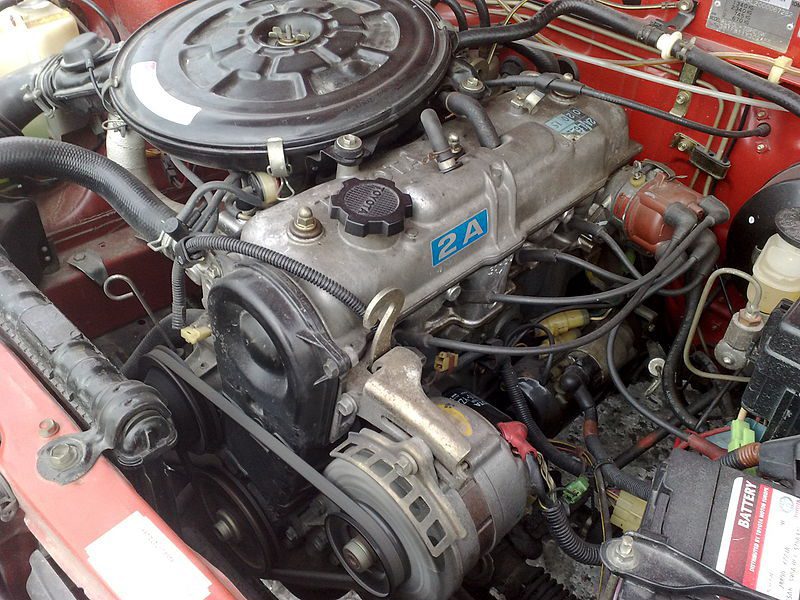Recognizing the Long-Term Benefits of Buying Engines for Africa for Future Development
The possibility of buying engines for Africa-- extending education, facilities, and technology-- presents an engaging possibility for long-lasting growth and stability. By purposefully improving these areas, nations can dramatically enhance efficiency and market access, while concurrently constructing a skilled labor force efficient in driving advancement. Such investments not just lead the means for lasting economic diversity yet likewise strengthen durability versus global difficulties. However, the effects of these investments expand beyond instant benefits, increasing vital concerns about the future trajectory of African economic situations and their role in the international landscape. What pathways might emerge from this fundamental shift?
Economic Security and Durability

Furthermore, durability enables African countries to adapt to changing international characteristics, including climate modification and technological innovations. By prioritizing economic diversity, countries can lower dependence on a slim variety of sectors, therefore alleviating risks related to financial downturns. Financial investment in education and learning, innovation, and framework further reinforces this strength, empowering neighborhoods to thrive in spite of difficulties.
Executing sound financial policies and reinforcing banks are also vital methods for improving economic security. These actions can assist in access to credit history, enhance financial savings prices, and advertise efficient source allocation. Eventually, a durable financial framework lays the structure for lasting advancement, guaranteeing that Africa can exploit on its immense capacity while preparing for future uncertainties.
Work Development Opportunities
A dynamic job market is essential for driving lasting development and decreasing hardship in Africa. Spending in engines for Africa, particularly in industries such as technology, farming, and manufacturing, can considerably boost job production possibilities across the continent. As new markets arise, they necessitate a workforce geared up with varied abilities, causing boosted employment potential customers for neighborhood populations.
These investments not only develop straight job chances however likewise promote supplementary fields. For instance, a blossoming production industry can cause heightened need for logistics, upkeep, and supply chain management functions. This multiplier impact intensifies the overall work landscape, fostering a robust community where numerous sectors flourish collectively.
Furthermore, enhanced task possibilities can stimulate entrepreneurship, as individuals with stable incomes commonly look for to spend in their own organizations. This entrepreneurial spirit can provide added employment opportunities, adding to a dynamic economy.
Inevitably, by concentrating on job production via critical financial investments, Africa can harness its capacity, guaranteeing that financial growth converts right into tangible benefits for its people - engines for Africa. In doing so, the continent can construct a lasting future that focuses on both financial growth and social upliftment

Enhancing Education And Learning Equipment
Frequently boosting education and learning systems is essential for furnishing Africa's youth with the abilities required to grow in a quickly developing job market. A robust academic structure must focus on both scholastic quality and functional ability advancement. By straightening educational programs with the needs of sectors, educational institutions can much better prepare trainees for future work possibilities.
Investment in instructor training programs is important to improve instructional top quality. Well-trained instructors motivate students and foster crucial reasoning, imagination, and analytic abilities. Incorporating technical and trade training right into the education system can give trainees with substantial abilities that meet market requirements, therefore lowering young people unemployment rates.

Additionally, enhancing accessibility to education, particularly in country and underserved locations, is crucial. Techniques such as mobile understanding platforms and community-based education campaigns can connect the space, guaranteeing that all young people have the possibility to do well (engines for Africa). Ultimately, a well-rounded education and learning system will certainly be a keystone for Africa's lasting development and growth
Improvements in Modern Technology
Harnessing the power of technology is transforming various sectors throughout Africa, leading the way for technology and development. The combination of sophisticated technologies such as synthetic intelligence, big information, and the Net of Points (IoT) their website is transforming markets, improving productivity, and driving economic growth. These innovations are allowing services to improve operations, boost decision-making procedures, and promote an extra affordable market atmosphere.
In agriculture, as an example, accuracy farming techniques powered by data analytics are enhancing crop returns and resource management. The economic field is experiencing a surge in mobile financial and fintech services, which are increasing financial inclusion and supplying important solutions to underserved populations. In addition, the healthcare industry is gaining from telemedicine and digital wellness records, boosting accessibility to top quality care throughout remote locations.
As technology proceeds to evolve, its effect on education and learning is likewise significant, with e-learning systems increasing educational chances. By purchasing these technological developments, African countries can unlock new economic opportunities, develop jobs, and raise living criteria. Embracing development is crucial for lasting growth, making sure that Africa continues to be competitive on the global stage.
Infrastructure Advancement Effect
The quick advancements in technology are carefully intertwined with the urgent requirement for facilities growth throughout Africa. As countries make every effort to improve their financial landscapes, spending in durable framework systems becomes paramount. Efficient infrastructure-- making up transportation networks, energy grids, and communication systems-- helps with enhanced accessibility to sources and markets, inevitably bolstering productivity and financial development.
The influence of facilities development expands beyond immediate financial benefits. Boosted facilities fosters a setting helpful to innovation, bring in both international and local financial investments.
Additionally, calculated financial investments in framework can mitigate the dangers connected with environment adjustment, as resistant systems are crucial for adjusting to environmental difficulties. By focusing on sustainable infrastructure advancement, African nations can make sure long-term growth and security. Ultimately, the interplay in between technological innovations and infrastructure growth is crucial for recognizing the continent's complete potential and accomplishing lasting development goals.
Verdict
Finally, spending in engines for Africa-- encompassing education and learning, technology, and infrastructure-- offers significant long-lasting benefits necessary for lasting development. Such strategic investments foster financial security and strength, develop work possibilities, and boost education and learning systems, inevitably bring about advancements in technology and infrastructure development. The collective result of these initiatives not only strengthens market access and source distribution however likewise settings African nations to thrive and adapt in an increasingly dynamic global landscape.
Financial security and durability are important parts for lasting advancement in Africa, especially as the continent seeks to harness its vast sources and capacity. By prioritizing financial diversity, countries can reduce dependence on a narrow variety of markets, why not find out more therefore reducing threats linked with financial declines. Inevitably, a robust financial structure lays the foundation for lasting development, ensuring that Africa can exploit on its tremendous capacity while preparing for future unpredictabilities.
Efficient framework-- making up transport networks, energy grids, and interaction systems-- facilitates enhanced access to sources and markets, eventually strengthening performance and economic growth.
Such strategic investments foster economic security and resilience, produce job possibilities, and enhance education and learning systems, ultimately leading to advancements in innovation and infrastructure advancement.